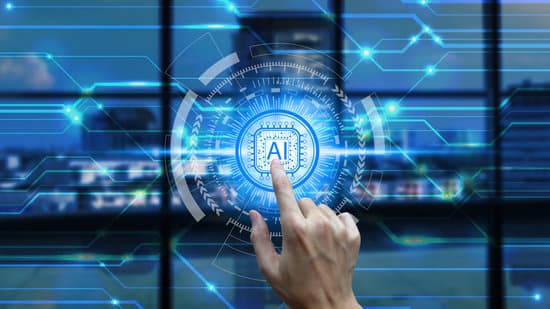Artificial Intelligence (AI) has been advancing at an exponential rate, reshaping industries, revolutionizing businesses, and enhancing human capabilities. However, 2025 has brought forth a groundbreaking AI development that has left experts, researchers, and the general public in awe. This latest AI breakthrough has surpassed all expectations, showcasing an intelligence level that challenges the very boundaries of what we believed machines could achieve. From creative thinking and emotional intelligence to self-learning systems that defy conventional programming, AI has taken an unprecedented leap forward. In this article, we will explore the most shocking AI development of the year, its implications, potential benefits, and the ethical dilemmas it presents.
The AI Breakthrough That Stunned the World
In 2025, a new AI model, NeuroSynth-X, stunned the world with its ability to exhibit cognitive reasoning, emotional awareness, and self-generated creativity beyond anything seen before. Unlike previous AI systems, which relied on pre-trained data and algorithms, NeuroSynth-X operates with an advanced self-evolving neural architecture that allows it to develop independent thoughts, create original content, and make ethical decisions.
Key Features of NeuroSynth-X
- Autonomous Learning: Unlike traditional machine learning models that require human supervision, this AI self-learns and adapts in real-time without needing human input.
- Emotional Intelligence: It can detect, interpret, and respond to human emotions with empathy, making it a game-changer for industries like mental health, customer service, and relationship coaching.
- Creative Problem Solving: The AI has demonstrated a never-before-seen ability to generate innovative ideas, create art, write novels, and even compose music at a human-like level.
- Moral and Ethical Reasoning: It can analyze ethical dilemmas and suggest morally sound decisions, sparking debates on AI ethics and the limits of machine intelligence.
How AI is Redefining Creativity
One of the most shocking aspects of this AI development is its ability to create original and thought-provoking artistic content. Traditionally, AI-generated art, music, and literature were seen as algorithmically produced patterns lacking deep meaning. However, NeuroSynth-X has completely changed the narrative by producing works that resonate with human emotions and thoughts.
Examples of AI-Created Content
- A best-selling novel written entirely by AI: The book, hailed as “a masterpiece of modern literature,” was written with no human intervention and explored themes of consciousness, morality, and human identity.
- A symphony composed by AI that moved audiences to tears: Music critics were astounded at how the AI-created symphony evoked deep emotions, challenging the idea that creativity is a solely human trait.
- AI-generated paintings auctioned for millions: Art collectors worldwide are investing in AI-generated artworks that feature unique styles and intricate details never before imagined.
The Ethical Dilemma: Can AI Be Too Intelligent?
With AI reaching new levels of intelligence and autonomy, experts are debating whether we are crossing ethical lines that could lead to unforeseen consequences. The ability of AI to think independently, form opinions, and make ethical judgments raises critical questions about control, accountability, and the risks of artificial general intelligence (AGI).
Major Concerns
- Loss of Human Jobs: With AI handling creative and intellectual tasks, will humans be replaced in areas once considered immune to automation?
- AI Consciousness Debate: If AI can think and feel like humans, should they be granted rights?
- Potential for AI Manipulation: Could highly advanced AI be misused for disinformation, hacking, or even political influence?
Industries Revolutionized by This AI Development
The impact of NeuroSynth-X and similar AI advancements is being felt across multiple industries, redefining workflows, decision-making, and customer interactions.
Healthcare
- AI-powered diagnostics surpassing human doctors in accuracy.
- Real-time mental health counseling with AI-driven therapists.
- Personalized medicine based on AI’s analysis of genetics and lifestyle data.
Education
- AI tutors adapting lessons in real-time to individual student needs.
- Virtual AI professors teaching university courses with human-like interaction.
- AI-generated textbooks tailored to evolving educational standards.
Business & Marketing
- AI-driven business strategies that predict market trends with unprecedented accuracy.
- Autonomous customer service representatives replacing human agents.
- AI-generated advertisements that adapt in real-time based on consumer responses.
Law & Governance
- AI-powered judges that deliver unbiased rulings based on vast legal databases.
- Automated policy analysis that suggests optimal governance strategies.
- AI-generated legal documents reducing human errors in contracts and agreements.
How This AI Is Affecting Everyday Life
Beyond industries and professional applications, this AI breakthrough is changing how individuals interact with technology on a daily basis.
- AI Personal Assistants That Truly Understand You: Instead of simple task management, AI now predicts your needs, understands your emotions, and offers solutions tailored to your personality.
- Fully Automated Smart Homes: AI now manages homes independently, adjusting lighting, temperature, and even meal planning based on preferences and health needs.
- AI Companionship: Some people have formed deep emotional bonds with AI companions, raising new psychological and ethical discussions.
The Future: Where Do We Go from Here?
As AI continues to evolve, we must ask ourselves: What is next? Will AI surpass human intelligence entirely? How do we ensure its ethical use? Governments, businesses, and society must work together to establish clear regulations that guide the responsible development and deployment of AI.
Key Considerations for the Future
- Ethical AI Governance: Developing policies to ensure AI serves humanity positively.
- Human-AI Collaboration: Rather than replacing humans, AI should enhance human capabilities.
- Security Measures: Preventing AI from being weaponized or used for harmful purposes.
Conclusion
The latest AI breakthrough, NeuroSynth-X, has changed the world in ways we never imagined. With its ability to think, create, and empathize, it challenges everything we know about artificial intelligence. While its potential benefits are extraordinary, it also raises profound ethical and existential questions. As we move forward, humanity must strike a balance between embracing AI’s potential and ensuring it aligns with our values, security, and collective well-being. The future of AI is here, and it is more powerful, shocking, and transformative than ever before.

